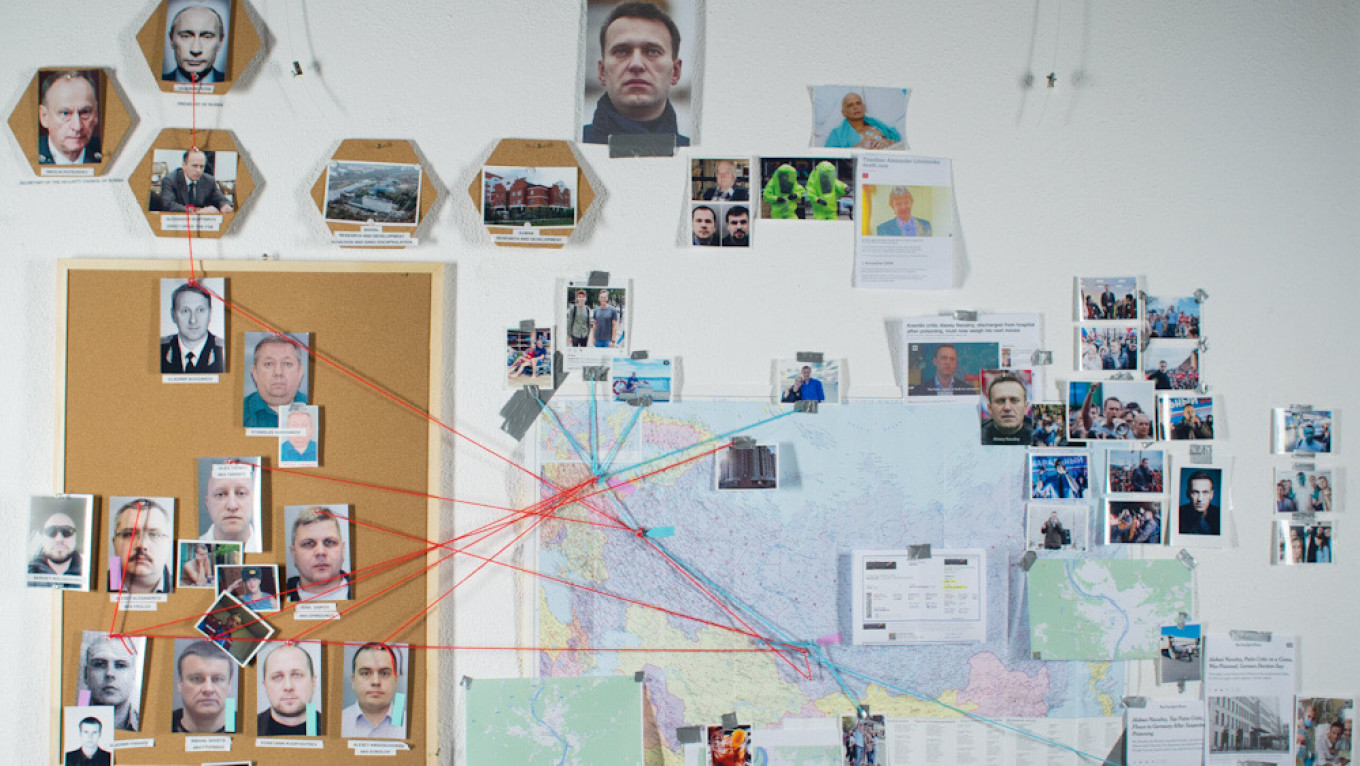
An elite Russian Federal Security Service (FSB) chemical weapons unit shadowed opposition figure Alexei Navalny’s movements for the past three years up until his near-fatal poisoning, a joint media investigation said Monday.
Navalny is recovering in Berlin after being poisoned with what Western governments say was the deadly Soviet-era nerve agent Novichok in August. The European Union sanctioned FSB chief Alexander Bortnikov and senior Kremlin officials over the poisoning.
Members of the FSB’s small unit specializing in toxins and nerve agents followed Navalny on more than 30 trips to and from Moscow since 2017, according to phone records, flight manifests and other documents examined by the Bellingcat investigative outlet, CNN, Russia’s The Insider news website and Germany’s Der Spiegel.
The report described the FSB unit as comprising six to 10 agents, including qualified doctors, toxicologists and paramedics in their late 30s and 40s.
The outlets said the team’s direct commander, military scientist Stanislav Makshakov, had communicated with senior figures at the FSB and a scientific institute behind Russia’s purported clandestine Novichok program before and after Navalny’s trips.
During one of the trips on July 6, Navalny’s wife Yulia Navalnaya fell ill with symptoms that experts reportedly said were consistent with low-dosage poisoning. At least three members of the FSB unit flew to Russia’s western exclave of Kaliningrad around the same time as the Navalnys, the outlets cited flight manifests as saying.
The joint monthslong investigation said that two teams comprising five or six FSB agents were deployed alongside Navalny’s Siberian trip at around the time of his Aug. 20 poisoning.
CNN said it could not “confirm with certainty” that the FSB unit poisoned Navalny, “but its activities in July and August suggest that the European action against Bortnikov and other senior officials is not misplaced.”
“I want to say a few words to the FSB and law enforcement agency officers: Aren’t you ashamed of working for this system?” Navalny wrote on his personal website in connection with the investigation.
The Kremlin has denied any role in the poisoning. President Vladimir Putin on Friday continued to accuse European countries, which have repeatedly asked Moscow to investigate Navalny’s poisoning, of refusing to cooperate on an investigation.
Putin also told the presidential human rights council that Navalny’s near-death did not warrant the opening of a criminal investigation in Russia.

Leave a Reply